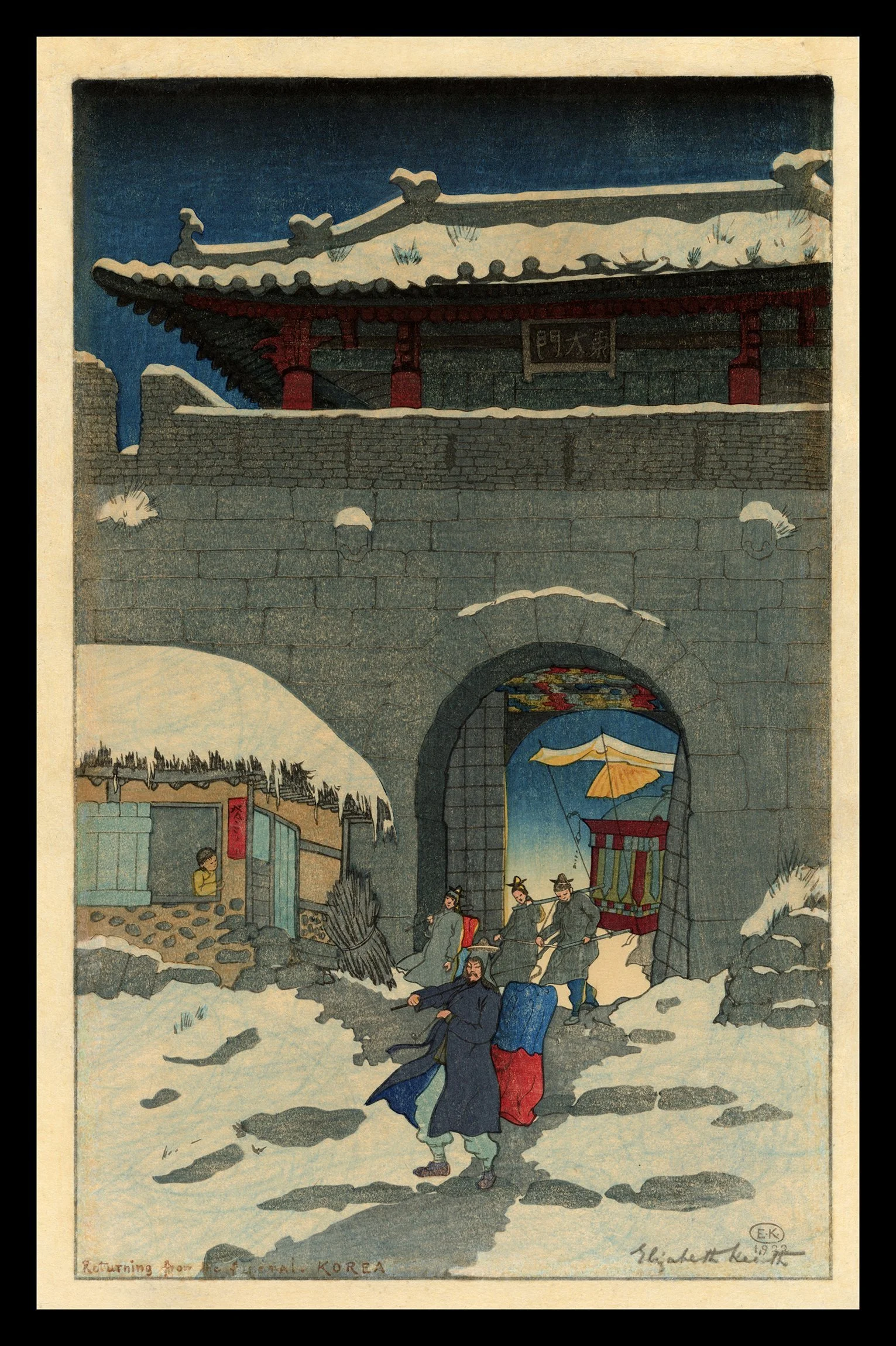Details
Elizabeth Keith first traveled to Tokyo when she was 28 and remained there for eight years. While in Japan, she produced paintings and watercolors of her travels in Asia. Exhibiting her work to much acclaim, Keith quickly garnered the eye of Watanabe Shozaburo, the Shin Hanga publisher, who hired the artist to produce designs for his woodblock print studio.
Keith shows the viewer a rare glimpse of an early 20th-century Korean funeral procession in this design. The scene shows pallbearers carrying the funeral cart holding the deceased as they exit the city's gate to entomb the body. The composition is stark, as one would expect, but Keith enlivens the scene with the use of blue through the composition. The rich dark blue sky crowns the composition while circular light blue barren patterns populate the surface of the snow. A bright decorative yellow umbrella is placed above the cart—the brightest portion of the composition—perhaps suggesting the dawning of a new life. A woman from a cottage window looks on as the cart maneuvers through the gate.
Connoisseur's Note
This Keith design from 1922 is an exceedingly rare work. The great Kanto earthquake of 1923 destroyed the original Watanabe print shop and studio, including the printing blocks and unsold inventory for this design. Only impressions of this design sold before and removed from Tokyo survived the earthquake and ensuing fires that consumed the city. The Korean subject further bolsters this work's desirability, as this way of life and the region's indigenous culture have been radically changed, perhaps even lost. In addition to being a striking work of art, this design has become an important cultural record of this region at the time of Keith's visit.



